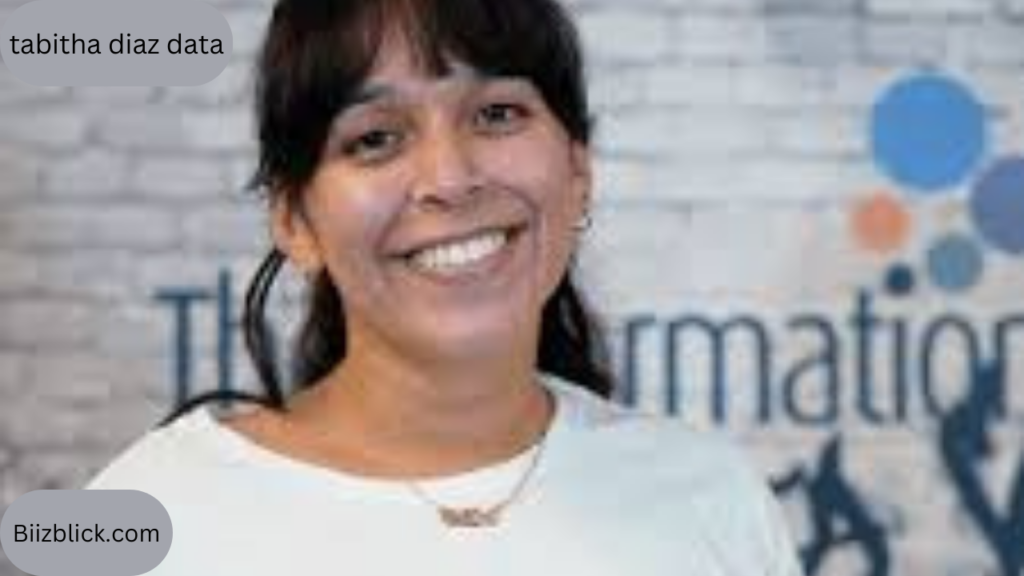Data plays a pivotal role in the modern world, shaping decisions, fueling businesses, and driving innovation. In this context, the phrase “Tabitha Diaz Data” could evoke curiosity about a person, a project, or a field where data is intricately managed, analyzed, or utilized. This article delves deep into the concept of Tabitha Diaz Data, unraveling its possible dimensions and highlighting the overarching importance of data in various domains.
Who or What is Tabitha Diaz?
To understand the significance of “Tabitha Diaz Data,” one must first explore who or what Tabitha Diaz represents. While specific details might vary, the term could pertain to an individual involved in data science, analytics, or technology. Alternatively, it could symbolize a hypothetical figure embodying the essential traits of a data professional or signify a brand or project that emphasizes data-centric innovation.
Regardless of the origin, associating the name with data signifies a focus on structured, insightful, and impactful data management.
Data in the Modern Era: Why It Matters
Before delving deeper into Tabitha Diaz Data, it is crucial to understand the broader landscape of data in today’s world. Data is the backbone of almost every industry, powering:
- Decision-Making: Data-driven insights help businesses, governments, and individuals make informed choices.
- Innovation: In fields like artificial intelligence, machine learning, and big data, innovation is fueled by vast datasets.
- Customer Understanding: Companies use data to better understand customer needs, preferences, and behaviors.
- Optimization: Operational efficiency in industries such as logistics, healthcare, and manufacturing relies on data.
Core Aspects of Tabitha Diaz Data
1. Data Collection and Organization
The first step in managing data involves systematic collection and organization. Tabitha Diaz Data may encompass methodologies for gathering accurate and relevant data from various sources, ensuring reliability and consistency. This process could include:
- Surveys, questionnaires, or forms
- Digital tracking tools and software
- Automated systems capturing real-time data
Effective organization ensures that data is easily accessible and usable, laying the groundwork for analysis.
2. Data Analysis Techniques
Data alone is meaningless without analysis. Tabitha Diaz Data might represent the techniques used to derive actionable insights, such as:
- Statistical Analysis: Unveiling trends, correlations, and patterns.
- Predictive Modeling: Using historical data to forecast future outcomes.
- Visualization: Creating charts and graphs for clearer interpretation.
By employing robust analytical methods, Tabitha Diaz Data could exemplify precision and depth in turning raw data into meaningful narratives.
3. Data Ethics and Privacy
In an age of increasing data breaches and privacy concerns, the ethical handling of data is paramount. If Tabitha Diaz Data signifies a standard or practice, it likely prioritizes:
- Transparency: Clear communication about data usage.
- Consent: Obtaining permission before collecting data.
- Security: Implementing measures to protect sensitive information.
These principles ensure that data management aligns with legal and moral standards.
4. Practical Applications of Tabitha Diaz Data
The real-world applications of Tabitha Diaz Data could span various industries, such as:
Healthcare
In healthcare, data is used to:
- Monitor patient health through electronic health records (EHRs).
- Predict disease outbreaks using epidemiological data.
- Improve treatment plans through data-driven research.
Business
In the business world, Tabitha Diaz Data might:
- Enhance customer relationship management (CRM).
- Optimize supply chain operations.
- Drive targeted marketing campaigns.
Education
In education, data helps:
- Track student progress and performance.
- Personalize learning experiences.
- Guide institutional decision-making.
5. Challenges in Data Management
Even with advanced tools and techniques, managing data is not without challenges. Tabitha Diaz Data might highlight common obstacles, such as:
- Data Overload: The sheer volume of data can overwhelm systems.
- Integration Issues: Combining data from disparate sources often proves difficult.
- Bias and Misinterpretation: Incorrect analysis can lead to misleading conclusions.
Overcoming these hurdles requires robust systems, continuous learning, and a commitment to best practices.
Future Trends in Tabitha Diaz Data
The concept of Tabitha Diaz Data also opens a window into future possibilities. Key trends shaping the future of data include:
- Artificial Intelligence and Machine Learning: Automating data analysis and uncovering deeper insights.
- Big Data Analytics: Handling massive datasets efficiently to uncover patterns at scale.
- Data Democratization: Making data tools accessible to non-experts, empowering more people to leverage insights.
- Blockchain for Data Security: Using blockchain technology to ensure data integrity and transparency.
As these trends evolve, the scope and impact of Tabitha Diaz Data will likely expand, offering new opportunities for innovation and problem-solving.
Conclusion
“Tabitha Diaz Data” encapsulates a rich tapestry of ideas surrounding data collection, analysis, application, and ethics. Whether it refers to a specific individual, a concept, or a methodology, it underscores the indispensable role of data in today’s interconnected world. By embracing best practices, addressing challenges, and staying ahead of emerging trends, Tabitha Diaz Data could serve as a beacon for excellence in data management and utilization. The journey into the depths of Tabitha Diaz Data is not just about numbers and patterns but about harnessing the power of information to create a better future.
